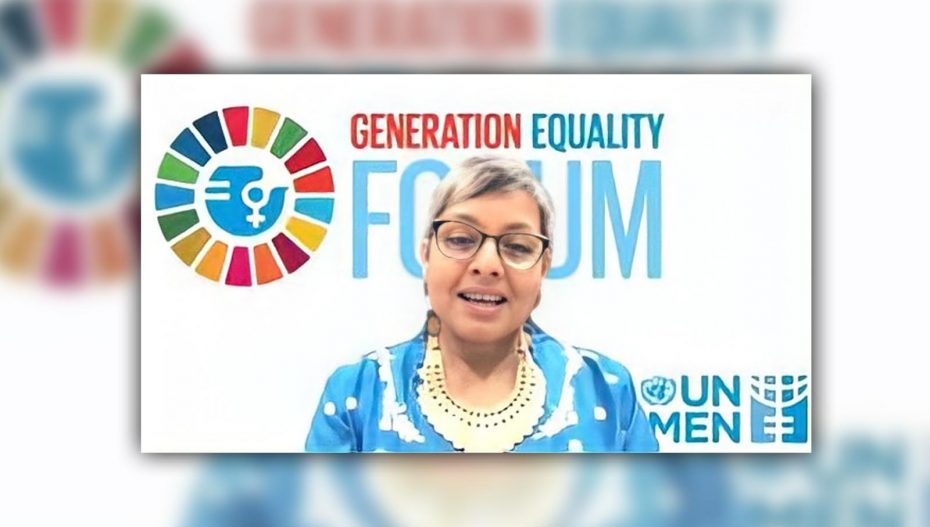Generation Equality Forum Raises $40 billion – the Highest Ever for #GenderEquality
On June 30, 40,000 people logged online to watch the three-day Generation Equality Forum in Paris, France. The global forum, a celebration of 25 years since the Beijing Declaration, has already managed to raise 40 billion – the highest ever for gender equality.
“It has been 26 years since Beijing and not a single country can be said to have achieved gender equality,” said Lopa Banerjee, the Director of Civil Society Division at UN Women and the Executive Coordinator of the forum, in an exclusive interview with VOI.
“Yes, there has been some progress, yes there are laws and policies in place, but the implementation of those laws and policies are weak, investment has been slow and political will has been slow. Galvanizing political will and investment is necessary and that is what the Generation Equality Forum has done.”
In 1995, a commitment was unanimously adopted by 189 countries as the “blueprint” for gender equality in Beijing, China. Despite promising equality, the Beijing Declaration fell short. The progress till has not been enough, not been significant and not been sustainable, according to Banerjee.
“On some of the most fundamental aspects of gender equality like gender-based violence we have not progressed at all. Prior to COVID-19, between 18-20% of women in the age group of 18-45 had faced intimate partner violence, which means 650 million girls in just a year had faced violence from an intimate partner. This is not progress.”
Banerjee attributes the success of the international forum to its “multi-stakeholder and multi-generational co-leadership.” The Core Group, the chief decision-making body for the forum, is co-chaired by Banerjee from UN Women, representatives from France and Mexico, and two representatives from civil society from Global North and Global South. Sri Lanka’s Chamathya Fernando and Jane Dorothy Anika represent the youth task force on the committee.
“COVID is a fundamentally discriminatory disease, it has exacerbated discrimination,” said Banerjee on the disparate impact of the pandemic on gender equality. “The Generation Equality Forum’s purpose was to accelerate implementation [of the Beijing Declaration] but since COVID the purpose has become to build back equal, better and build forward.”
Banerjee, who has done considerable fieldwork in India, also spoke to VOI about how while India, like other nations, has made progress on women’s education and poverty alleviation, women’s political participation and women’s voice in decision-making remains limited.
“We have seen that when women are in power, they bring about social policy that affects and creates equitable society for everyone and not just women,” she said. Women make up less than 15 percent of India’s upper and lower house in parliament, falling behind Pakistan, Afghanistan, Nepal, Bhutan, and Bangladesh in the neighbourhood.
Bangladeshi Prime Minister Shiekh Hasina, the only female head of state in South Asia, also spoke at the global forum.
“Many of the promises made in Beijing in 1995 remain unfulfilled. We must reverse this situation,” said PM Hasina. “I commit to increasing women’s participation in the ICT sector in Bangladesh to 50% by 2041.”












